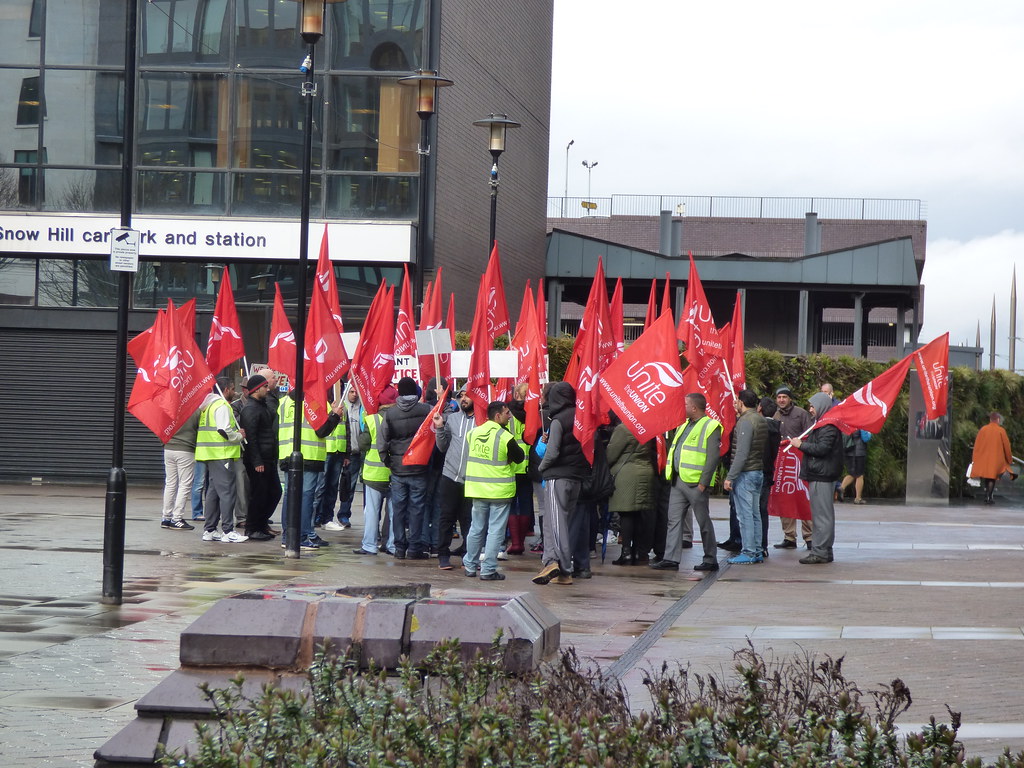Unite the union was formed in 2007 by the merging of AMICUS and TGWU. Criticism about the decision to create a megalithic super union ranged from concerns over democracy to worries about its inevitable managed decline and how that could be fixed. Its first solo leader Len McCluskey came to power with two clear strategic objectives: to make himself (and therefore Unite) the face of trade unionism in the UK and deliver the most significant improvement in workers’ rights in a generation through gaining the Labour leadership for his candidates and supporting them in their fight to become Prime Minister.
This strategy’s method of delivery was four-fold. First, Unite’s public relations prioritised mass media appearances. During his tenure, McCluskey made 21 appearances on 5 Live Sunday morning show Pienaar’s Politics, a dozen guest appearances on the Andrew Marr Show, two BBC Question Times and half a dozen on BBC Daily Politics. Towards the end of his time as General Secretary, McCluskey also wrote two books, one an autobiography and another entitled “Why You Should Be A Trade Unionist”.
Secondly, to involve Unite with popular left-wing movements that sprang up after the Global Financial Crisis, an attempt to align with youth movements to create positive association with a key membership demographic. This was both proactive (founding, and subsequently becoming the largest donor, to think-tank CLASS, creating a community membership category to attract students) and reactive (using Unite’s PR budget to align McCluskey with UK Uncut)
Thirdly, McCluskey’s industrial relations focus was on public relations campaigns such as: instigating a public conversation on the possibility of a General Strike in the UK (for the first time since 1926); and delivering a postured one-day all Unite the union strike. Both can be seen as “Brand Awareness” campaigns as opposed to any real attempt at improving compensation and benefits for members.
Lastly, Unite’s Political Strategy announcement in 2011 spelled out its focus on improving workers rights through political power. Unintentionally the strategy culminated in the Falkirk by-election candidate debacle, and the subsequent internal Labour investigation that led to Ed Miliband restructuring Unite’s power to choose future Labour leaders.
A charitable analysis of this period of leadership is that McCluskey’s Unite built its brand, was given direction and purpose, and came within 2,227 votes from putting a Unite-backed leader into no. 10.
An alternative view is that under McCluskey Unite did little for its members, focused on grandstanding and political intrigue to the clear detriment of its members, and presided over a continual slide in membership at a critical time of steadily reducing compensation and benefits. Surely the most ironic outcome of this strategy is once-Unite backed Labour councillors being suspended from the union after being accused of “colluding with strike-breaking” in the midst of a four-month Unite bin workers strike in Coventry.
The nadir was reached when McCluskey’s declared in April 2020 that Unite would reinvest the money withdrawn from Keir Starmer’s Labour party to “support and nurture new voices across our movement” in 2020, instead of increasing support for workers’ compensation and benefits in the first month of the first covid lockdown. This also meant the decade-long political strategy was dead: reduced support meant a reduced voting share at conference.
One of the new voices who was not nurtured through McCluskey’s strategic largesse was Sharon Graham. Maligned as the “splitter” candidate, she won the general secretary election 2021 on a platform that sought to repudiate the Unite establishment, promising to bring the union “back to the workplace”.
By my own count, since the beginning of 2022 there have been more than 41 strikes announced by the union (it should be noted this is an estimate based off Unite’s website and may not reflect the true figure), by far the highest number of strike actions announced for any year since amalgamation. There have also been 13 strikes suspended, pending pay offers. The average declared increase has been 17 per cent.
This is in line with Graham’s manifesto pledge to “Raise bargaining standards and expectations….Every settlement worth less than inflation to be looked at by the new Industrial & Bargaining Committee of the Executive Council.” This is in contrast to the previous leadership who, in the January 2011 example of HJ Heinz workers, agreed to a below-inflation level pay-rise of 3.9 per cent.
By focusing less on self-promotion and more on cross-promotion of winning industrial disputes, Graham is creating leverage over employers, which theoretically should lead to shorter strike times and faster and more successful settlements. One current limitation to this strategy is the relatively small size of the Organising and Leverage Department, led by Graham prior to her election as General Secretary, it was previously plagued by underinvestment by the former leadership. Currently all of its efforts are directed towards the Coventry bin strike.
That is why the Coventry bin strike feels so pivotal. So far there has been no movement from Labour councillors in the face of this ongoing strike action, including those with Unite membership (who have been suspended from the union on Graham’s insistence).
The savings Unite made from withdrawing funds from Starmer’s Labour would seem not to have gone on “discovering new voices”, but on significantly bolstering current members’ voices: fighting dozens of employers at the same time and securing material pay increases. With Graham’s accession, Unite finally has a union leader capable of delivering more than just managed decline and the U.K. has its most effective union leader for a generation, expertly ramping up pressure across employers using one success to put pressure on others to show that she is a winner and will not back down.


